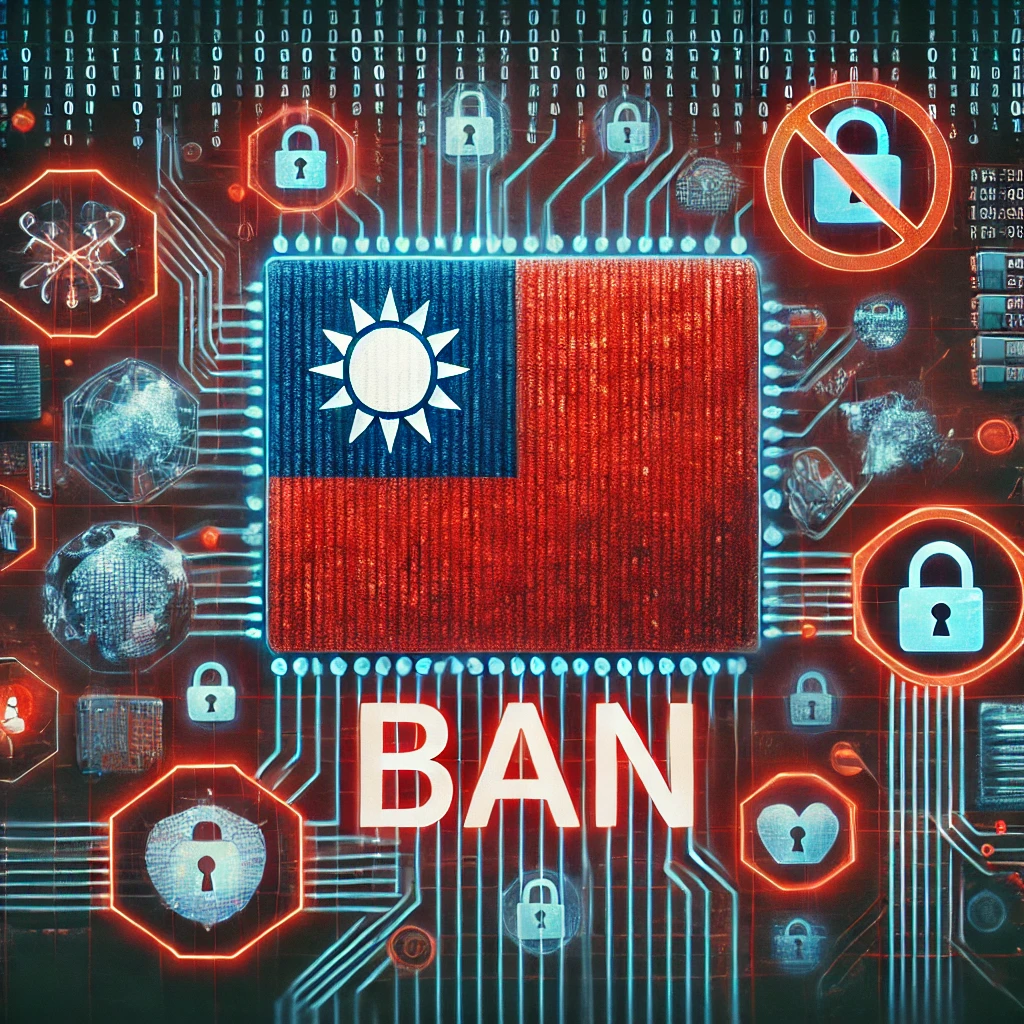In a bold move to safeguard its national security, Taiwan has officially banned all government departments from using DeepSeek’s artificial intelligence (AI) services. This decisive action reflects the island nation’s growing apprehension over the potential security threats posed by foreign-developed AI technologies, particularly those originating from China.
The Official Announcement
The ban was announced during a recent cabinet meeting, where Premier Cho Jung-tai emphasized the critical need to protect Taiwan’s information security infrastructure. The government issued a formal directive to all public sector entities, explicitly prohibiting the use of DeepSeek AI services. This decision marks a shift from earlier advisories, which merely recommended caution without enforcing an outright ban.
According to the official statement, the primary concerns revolve around potential data breaches, unauthorized data transmissions to China, and the inherent risks of embedded censorship within the AI platform. “This ban is a necessary step to prevent sensitive government data from being compromised,” Premier Cho stated.
Underlying Security Concerns
Taiwan’s Ministry of Digital Affairs elaborated on the specific security issues associated with DeepSeek. Being a Chinese company, DeepSeek’s operations involve cross-border data transmission, which raises red flags regarding the confidentiality and integrity of sensitive information. The ministry warned that such data flows could be exploited for espionage, posing a direct threat to national security.
Cybersecurity experts have also pointed out that AI platforms like DeepSeek can be manipulated to gather intelligence covertly. The AI’s ability to process large volumes of data makes it an attractive tool for malicious actors seeking to extract confidential government information.
Global Scrutiny of DeepSeek
Taiwan’s decision to ban DeepSeek is not an isolated incident. Several other countries have expressed similar concerns and initiated investigations into the company’s data handling practices. Authorities in South Korea, France, Italy, and Ireland are currently examining how DeepSeek manages personal data, reflecting a broader international apprehension.
These investigations highlight a growing trend among nations to scrutinize AI technologies developed by Chinese firms, driven by fears of state-sponsored surveillance and data exploitation. The global community is increasingly wary of the potential risks associated with foreign AI platforms, especially those linked to countries with stringent data control laws.
DeepSeek’s Rapid Rise and Associated Risks
DeepSeek, a rapidly growing Chinese AI startup, has garnered significant attention for its advanced AI services. Despite its technological prowess, the company’s Chinese origins have subjected it to intense scrutiny. Critics argue that DeepSeek’s data policies lack transparency, making it difficult to ensure that user data is not being accessed or manipulated by unauthorized entities.
The company’s meteoric rise has been accompanied by allegations of data privacy violations and security breaches. These concerns are amplified by China’s strict cybersecurity laws, which compel domestic companies to cooperate with state intelligence agencies upon request.
Implications for Taiwan and Beyond
Taiwan’s ban on DeepSeek AI services underscores a broader strategic effort to fortify its cybersecurity defenses amidst escalating geopolitical tensions with China. The move is part of Taiwan’s comprehensive strategy to reduce its reliance on Chinese technology and safeguard its critical information infrastructure.
For other nations, Taiwan’s decision serves as a cautionary tale. It highlights the importance of conducting thorough risk assessments before adopting foreign-developed AI technologies, particularly those from countries with opaque data governance frameworks.
Conclusion
Taiwan’s proactive stance against DeepSeek AI underscores the growing importance of cybersecurity in national security strategies. As AI technologies become increasingly integrated into government operations worldwide, the need for robust data protection measures cannot be overstated. Taiwan’s ban not only reflects its commitment to safeguarding sensitive information but also sets a precedent for other nations grappling with similar security concerns.
